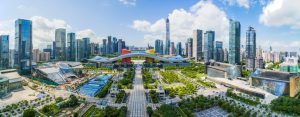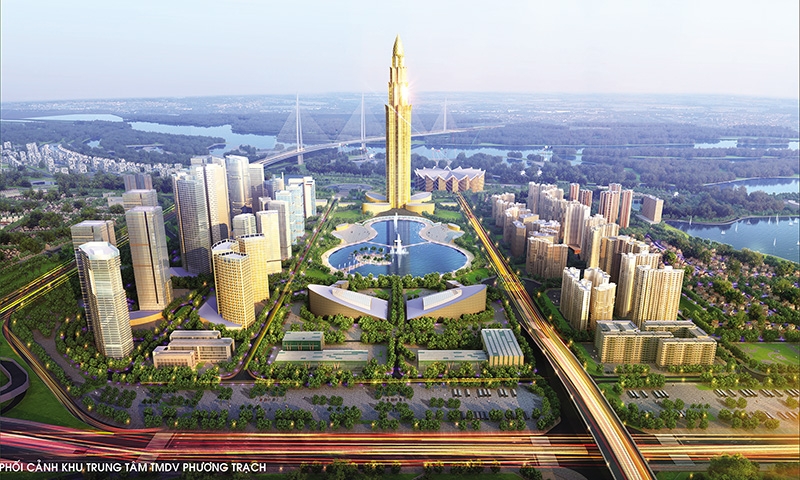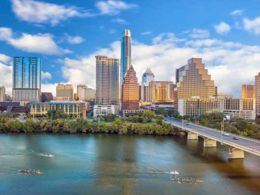Urban Evolution: How Real Estate Drives Sustainable Development
Introduction:
Greetings, I’m David Simon, a seasoned real estate expert with over two decades of experience navigating the ever-changing urban landscape. In this enlightening exploration, we’ll delve into how the real estate industry is propelling the evolution of sustainable urban development. Join me on a journey through eco-conscious construction, community-centric designs, and the pivotal role of sustainable real estate in shaping greener, more resilient cities.
The Urban Challenge
As our world continues to urbanize at an unprecedented pace, sustainable urban development is no longer an option but a necessity. Cities are centers of economic vitality and innovation, yet they face significant environmental challenges. Real estate, as a fundamental component of urban infrastructure, stands at the forefront of efforts to create more sustainable, resilient urban environments.
Sustainability in Real Estate: Beyond Words
Sustainability in real estate goes beyond mere words. It embodies a holistic approach that encompasses eco-conscious building practices, resource efficiency, and community well-being. Let’s delve deeper into the core elements that define sustainable real estate:
Eco-Conscious Construction
Sustainable real estate embraces eco-conscious construction practices that minimize energy consumption, reduce waste, and harness renewable resources. Features such as solar panels, energy-efficient insulation, and rainwater harvesting systems are becoming standard in eco-friendly urban developments.
Community-Centric Designs
The concept of “smart cities” extends to creating communities that are not only technologically advanced but also livable, walkable, and inclusive. Sustainable urban developments prioritize mixed-use spaces, green corridors, and efficient public transportation to reduce congestion and enhance residents’ quality of life.
Environmental Resilience
In an era marked by climate change and natural disasters, sustainable real estate incorporates resilient designs that can withstand extreme weather events. These designs bolster the safety of urban areas, decrease vulnerability, and ensure the well-being of city dwellers.
The Impact of Sustainable Real Estate
The influence of sustainable real estate is profound and far-reaching:
Economic Prosperity
Sustainable urban developments attract businesses and investments, fueling economic growth and job creation. Additionally, energy-efficient buildings translate into reduced operational costs, benefiting both commercial and residential property owners.
Environmental Benefits
Eco-conscious real estate practices significantly reduce greenhouse gas emissions, conserve resources, and mitigate pollution. This contributes to a healthier planet and helps counteract the effects of climate change.
Elevated Quality of Life
Community-centric designs prioritize green spaces, recreational areas, and accessible public services. These elements enhance the overall quality of life for urban residents, fostering well-being and contentment.

The Path Forward: Collaboration and Innovation
The journey toward sustainable urban development hinges on collaboration and innovation:
Public-Private Partnerships
Successful sustainable real estate projects often emerge from collaborations between governments, private developers, and community stakeholders. These partnerships pool diverse expertise and resources to create vibrant, eco-friendly urban spaces.
Technological Advancements
Innovative technologies, including smart grids, IoT (Internet of Things) devices, and data analytics, play a pivotal role in sustainable urban development. These tools enable more efficient resource management, improved transportation systems, and enhanced urban planning.
Expert Insights: Dr. Elena Martinez, Urban Sustainability Scholar
To gain deeper insights into the role of real estate in sustainable urban development, I had the privilege of speaking with Dr. Elena Martinez, a distinguished urban sustainability scholar and author of several groundbreaking studies on sustainable cities.
Dr. Martinez underscored the need for integrated planning, stating, “Sustainable urban development necessitates a comprehensive approach that considers not only environmental aspects but also social and economic dimensions. Real estate is instrumental in shaping the physical and social fabric of our cities.”
Conclusion: Urban Evolution Through Sustainable Real Estate
As cities continue to expand and evolve, the real estate industry’s contribution to fostering sustainable urban development is indispensable. It’s not merely about erecting buildings; it’s about crafting communities, preserving the environment, and securing a brighter, more sustainable future for all.
Sustainable real estate serves as the linchpin of urban development in the 21st century. By embracing eco-conscious practices, community-centric designs, and fostering innovation through collaboration, we are driving the evolution of cities into more prosperous, environmentally responsible, and socially inclusive urban spaces.












